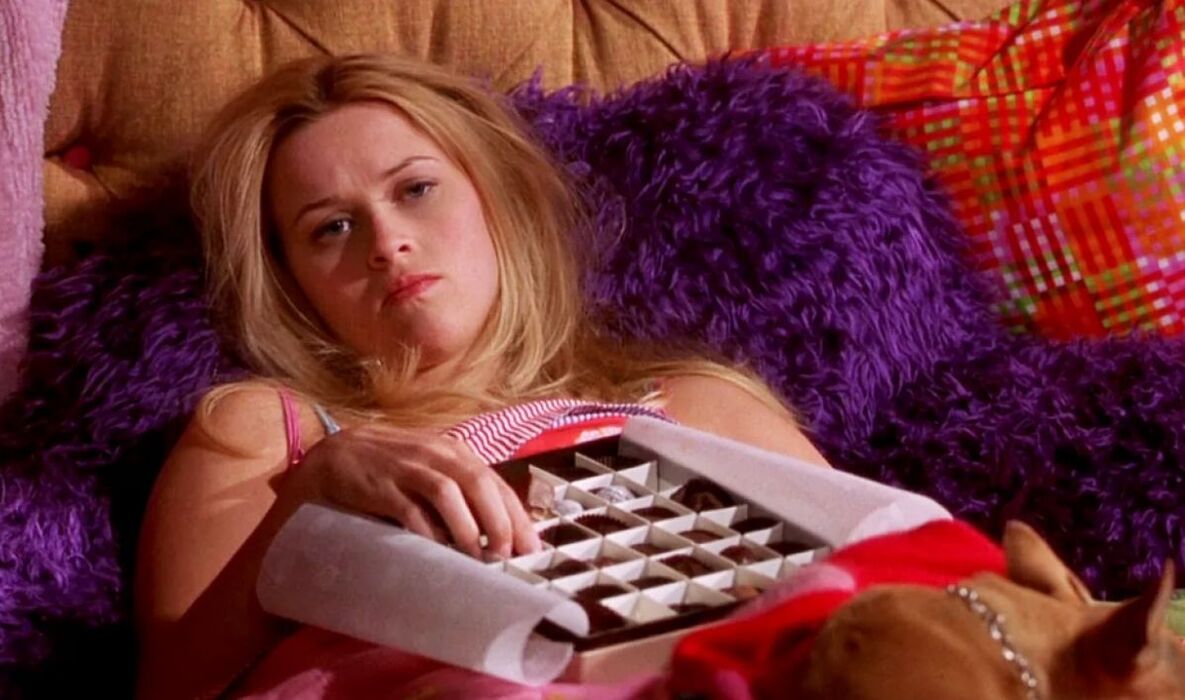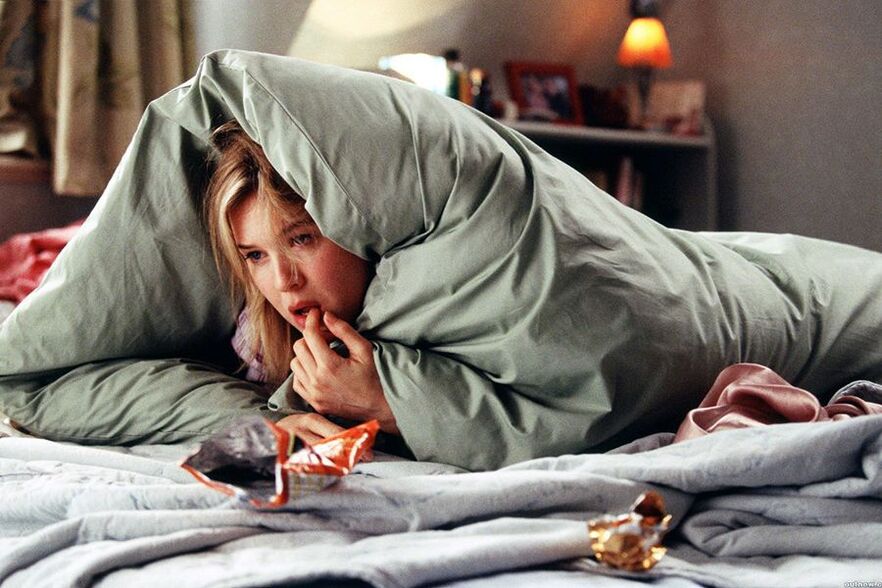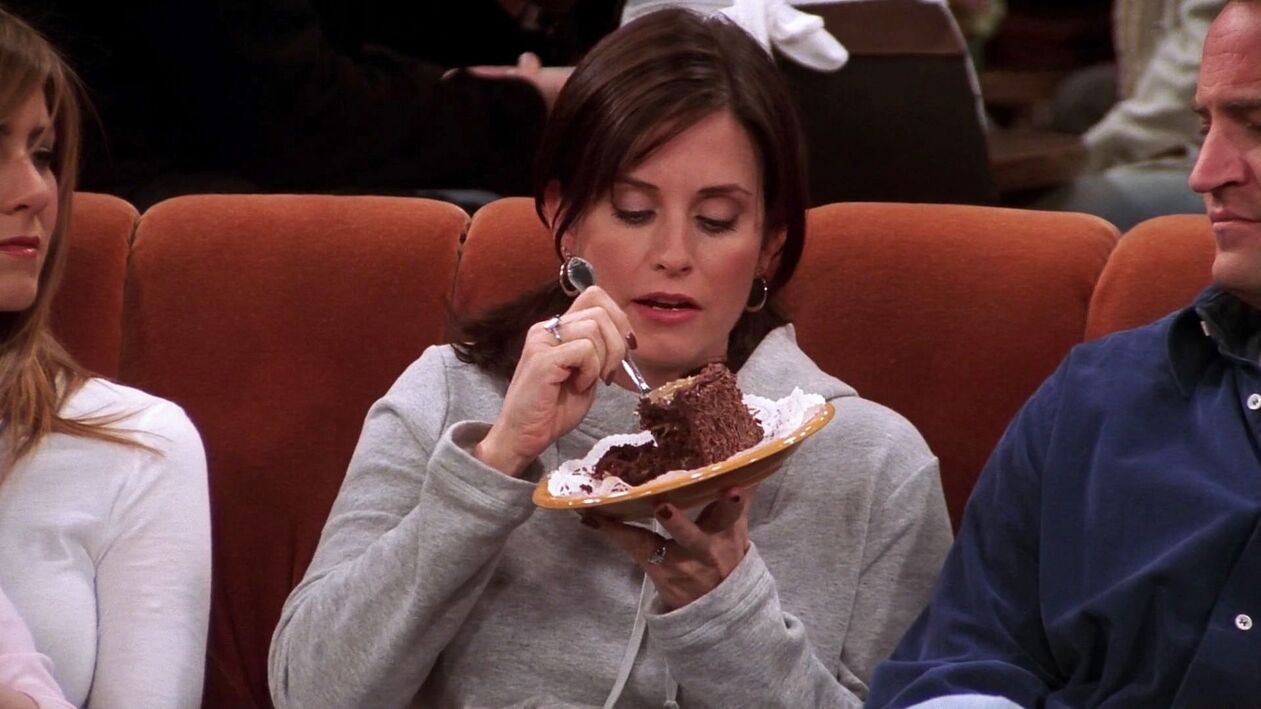
The title contains a popular query on search engines. However, this article does not provide advice on how to "count to 10 and drink a glass of water. " Let’s talk about something else: why forcing yourself not to eat to lose weight is a bad idea and how to deal with your approach to food.
What's wrong with not eating to lose weight?
Practicing psychologist: If you look at nutrition in a healthy way, you are in contact with your body - you hear its signals and know how to negotiate with it. If the body signals hunger, you saturate it and when you are full, you stop eating. The message "don't eat to lose weight" means ending this contact, confronting yourself, and self-aggression. It turns out that you're taking action against yourself to achieve a goal (weight loss). It's not goodOboring and unhealthyOin.
psychiatrist: Most people who lose weight due to a restrictive diet regain it in 1-2 years. Plus, 2/3 of them win more than they lose.
Endocrinologist:The news that you need to force yourself not to eat to lose weight is irrational. It is important to understand: what happens to the body? Perhaps this is not due to malnutrition but to hormonal properties.
And what is a healthy approach to food?
psychiatrist: This is when regular meals and snacks are not accompanied by anxiety, shame and guilt. Lack of "forbidden foods", diets and calorie counting. And when you can afford to enjoy food.
Endocrinologist:It is about the fact that food is a condition for a full and happy life. And not as a substitute for joy and pleasure.
Practicing psychologistA: This is when you eat from hunger, stop being full, don’t focus on your body’s imperfections that need to be "corrected" with food or giving it up when you’re not overeating, you’re not taking emotions.
Can you provide more information? How and why do we eat emotions?
Practicing psychologistA: Psychics don’t have good and bad emotions, she can deal with any. It does not need food, alcohol, appliances or a TV. However, there are situations where a person drowns his emotions in food. Sadly, I ate a bowl of ice cream - it got easier. His behavior received positive reinforcement, and the man began to resort to this strategy again and again.
Consultant psychologist:People often overeat because they lack rest. I will give an example. The young woman came up with a problem: she eats a lot in the evenings and can’t refrain. It turns out she works in threes because she can’t give up colleagues. No snack ever: business all the time. And in the evening she can’t eat. That is, a person exhausts himself, becomes overwhelmed, and experiences stress all the time. How to recover lost energy? Burgers, potatoes, chocolate.
It turns out if a person eats when he’s bored, anxious, angry, tired or sad, is that wrong?
Consultant psychologist:In itself, this is neither good nor bad: food is unconsciously associated with security. For a newborn, food is not just food, but closeness to the mother, calmness, trust, acceptance, love, communication. Adults also sometimes eat to calm down. Bad when it’s the only way to deal with anxiety or fear.
psychiatrist: Food satisfies a variety of psychological needs. For example, dinner with the family is intimacy. When you go out to a restaurant with friends, you no longer need social interaction. The problem arises when food becomes the crutch of our negative experience. This brings us to the topic of eating disorder (EID) or eating disorder. Psychiatry solves these problems.
Wait Wait! Turns out if I eat a bar of chocolate an hour later and feel guilty - is that a problem already? Should I go straight to a psychiatrist?

Practicing psychologist:A difficult question. There are situations where a person eats while running, chaotically, ignoring what he is eating. Or he eats when he’s not really hungry - out of boredom or because of company. It can only be an eating disorder that can be corrected by a nutritionist. However, eating at the same time without starvation is one of the symptoms of RIP. The line is very thin. And only a doctor can determine that. In our country, this is what a psychiatrist does.
Endocrinologist:It happens that a person is constantly sad, anxious, tired - and grabs these problems. Perhaps this is the result of constant stress. However, they are also symptoms of endogenous depression and anxiety neurosis. A psychiatrist is also involved in the diagnosis of such conditions.
But isn't ERP - bulimia and anorexia? Symptoms are difficult to confuse
psychiatrist: It’s not just bulimia and anorexia. Eating disorders also include psychogenic overeating (also called paroxysmal or compulsive), eating inedible food (Pick’s disease), and psychogenic loss of appetite. These are disorders included in the International Classification of Diseases (ICD). However, there are disorders that are not on this list, but also attract psychiatric attention: selective eating disorder, orthorexia (when the desire for a healthy lifestyle exceeds all limits), and pregorexia (the most restrictive diet for pregnant women).
Practicing psychologist: Psychology also distinguishes overeating syndrome (BOE): when a person eats almost nothing all day, can not fall asleep for a long time or wakes up often and goes to the refrigerator when he wakes up.
Is obesity also ERP?
psychiatrist: Not always. There can be many reasons - genetics, and a sedentary lifestyle, and hormonal disorders. It is not possible to equate RPP with obesity.
Practicing psychologist: Yes I agree. There are completely healthy eating people who are obese. And vice versa, for example, in patients with anorexia nervosa.
Have you heard that the RPP problem is mostly about women, teens and models? This is true?

Psychiatrist:Of course not. The disorder can develop at any age in both men and women. For example, selective eating disorder is most common in children - the child eats only certain foods.
Practicing psychologist: Anorexia and bulimia are more common in women. However, compulsive overeating is the same for men and women. Thus, RPP cannot be said to be a purely feminine problem. And so, teenagers, models, athletes engaged in aesthetic sports (rhythmic gymnastics, figure skating, sport dancing), TV presidents, bloggers, actresses - risk everyone who is in sight and whose work depends on appearance. However, the problem can befall anyone, including those who are far from modeling business or beauty blogs.
It is believed that any nutritional problem is an attempt to grab attention. This is true?
Practicing psychologist: There is such an opinion, but it is not scientifically based. Yes, during treatment, RPP may appear to have started when the person was not accepted by peers. For example, for a 13-15 year old girl, it is important that the guys look at her and have the approval of her friends, so she followed a strict diet. It also happens that food problems are an attempt by a child to often unconsciously grab their parents' attention. But these are quite special cases. It is a mistake to think that the need for attention is the main cause of eating disorders.
So what's the reason?
Practicing psychologist: There are three groups of causes: biological, psychological, and social. Biological - such as a genetic predisposition to RPC - can unfortunately be inherited. Psychological - domestic violence, prohibition to express negative emotions, violation of parental and child attachment (for example, if the child is cold, estranged parents). Social - the cult of ideals of beauty, slenderness, bullying.
psychiatristA: There are certain personality traits that can contribute to the development of EID, such as perfectionism or excessive responsibility. It is also influenced by the peculiarities of eating behavior in the family, attitudes towards weight, figure. For good behavior and learning, the child could be rewarded with candy, which stuck: because I’m good, I can pick up candy. Very well? I'll take ten.
Consultant psychologist:Many patients with ECD have experienced physical or sexual abuse. Also, for many, food helps to get secondary benefits from the situation. For example, one of my clients needed weight to protect herself from men. During the therapy, we found out that the school-age girl was in an unpleasant situation with an adult husband. The client was surprised to remember that this story seemed "forgotten, " but continued to influence the girl's adult behavior. They also revealed a belief that men only like skinny. If so, the extra weight helped her "be safe, " that is, without men.
How common are eating disorders in society?

psychiatrist: The global prevalence of RPC is estimated at about 9 percent. The prevalence is higher in risk groups. Studies in adolescent girls suggest that about 13% have symptoms of CRP before the age of 20 years. Anorexia is one of the deadly mental disorders that surpasses only chemical dependence.
Practicing psychologist: It is difficult to give exact figures because people with PAD often do not fully understand that they need help. There are figures for the U. S. as it is the center for research and statistics on eating disorders: about 30 million. people live with eating disorders. There are twice as many women as men (20 million, compared with 10 million). And every hour in the world, at least 1 person dies from the effects of RPE.
What are the symptoms of RPE? Can I diagnose myself?
psychiatrist: In general, the main symptoms are:
- After eating, the person vomits or compensates for what they have eaten in other ways, such as excessive physical activity (physical tyranny), laxatives and diuretics.
- Strong weight and shape fixation (you can't add / lose a single gram or centimeter! ).
- There are many attempts to lose weight and body weight fluctuates.
- Various diet rules (I eat only protein, only vegetable, only red).
- Constant thoughts, fears and guilt and feelings of shame related to eating and losing weight. When thoughts and behaviors related to food bring a lot of suffering.
- Loss of control of food intake.
However, many of these symptoms can have varying degrees. Is there a more accurate diagnosis?
Endocrinologist:RPD is a systemic chronic disease. It causes changes in metabolism in systems and organs, changes in human neurohumoral regulation. It is a complex problem that can lead to neurosis, organic brain pathologies, organic damage, and depressive disorders.
But first you need to determine the cause of the symptoms. For example, if a person is running to the refrigerator at night, glycogen levels need to be checked to avoid insulin resistance and type 2 diabetes.
What if you realize you or your loved one has a RPP?
Practicing psychologist: If you have one, see a psychiatrist for a diagnosis. If you suspect a RPP for a loved one, it’s harder: he often refuses, not wanting to admit that something is wrong with him. And unnecessary pressure can destroy trust. Let your loved one understand that you are on his side, ready to help and support.
Who treats ECD? Only a psychiatrist?
psychiatrist: No. The diagnosis is made by a psychiatrist. And treats, depending on the disease, a psychiatrist, a psychotherapist, a clinical psychologist (as prescribed by a psychotherapist). Why is it so important to see a psychiatrist first? Because it can reveal comorbid conditions such as depression or anxiety disorder, which are found in about 80% of people with RPD. Treatment depends on the severity of the disease. It can be drug therapy in combination with psychotherapy (group, cognitive-behavioral, dialectical behavior). Family therapy is also recommended.
Consultant psychologist:Anorexia and bulimia are treated primarily by a psychiatrist. Emotional overeating - psychologist, consultant psychologist. Obesity - a dietitian-endocrinologist (need to check hormones for metabolic disorders) together with a psychologist or psychotherapists.
















































































